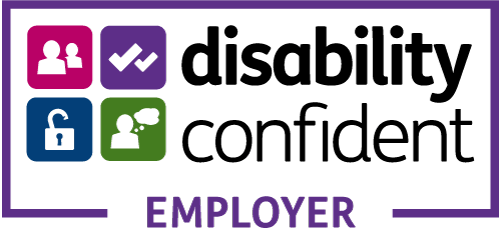Employment is such a key part of our mental health wellbeing
The role of the employment advisor alongside your Therapy
Mental health & Employment
For those being impacted by mental health illness, being employed can be an important step to recovery, improving self-esteem, confidence and reducing psychological distress.
Mental health includes our emotional, psychological, and social well-being. It affects how we think, feel, and act. It also helps determine how we handle stress, respond to situations, relate to others, and make choices.
For someone who is being impacted by mental health illness, an employer plays an extremely important role in supporting the employee and can support them in a number of different ways and by offering support, reassurance and understanding.
Most people's mental health will not just be continuously good. Usually, it will rise and fall depending on pressures and/or experiences in their life, such as work. A person may therefore feel in good mental health generally but also experience stress and anxiety from time to time.
People being impacted by mental health illness are often the experts when it comes to identifying the support or adjustments they might need and how to manage their triggers within the workplace. However, not everyone is confident in having these conversations with their employer and will often avoid taking positive actions.
Here at Trent PTS, we offer an employment support service, which is an integrated pathway for patients who are receiving therapy and experiencing work-related barriers which are triggering their mental health negatively and we can help in many different ways. For those who choose to be supported this way, this can help to supplement their therapy and can help achieve improved mental health outcomes.
Avoidance Behaviour & collaborative working
Avoidance behaviours are any actions a person takes to escape from difficult thoughts and feelings. These behaviours can occur in many different ways and may include actions that a person does or does not want to take. These behaviours can have a negative impact on many aspects of your life, including your workplace.
I have recently supported a patient who was accessing IAPT therapy who was off sick from their workplace with work related stress and anxiety and was considering their current employment options and contemplating whether they wanted to return back into their workplace. Within the patient’s therapy sessions, it had been identified there was a history of avoidance behaviour and a repeated pattern of behaviours that had occurred within many of the patient’s past employments. Where there had been issues or conflict with a line manager, rather than the patient confront these and try to resolve with their employer, they would avoid this and resign.
I worked collaboratively with the therapist and the patient, with the main focus on breaking this repeated pattern of behaviour hoping to empower the patient to regain control of their thoughts and feelings and develop better coping strategies when dealing with workplace conflicts.
The therapist focused on providing the clinical interventions while I focused on the workplace issues.
Through collaborative working between me and the therapist, we were able to help the patient to adjust their mindset in a positive way and help them to understand that the key to overcoming avoidance behaviour was to slowly face what they were avoiding so it was no longer controlling them and over time this would become more manageable.
We explored past and current workplace issues, the approach taken by the patient to overcome their workplace problems and how they could have been handled differently, increased awareness of ways to be more assertive at work, or how conflicting situations can be overcome while learning new ways to reduce stress within the workplace as it arises.
We spent time to reflect and learn about different management styles and explored the difficulties the patient has when challenging people in authority within the workplace and how this links into their avoidance behaviour, past and present. We analysed the current difficulties the patient has with communicating openly with their current line manager and looked into how this could change.
The important breakthrough for the patient was when they attended a welfare meeting with their employer, which took place within the workplace. The patient was given support to prepare and plan for this meeting, establish reasonable adjustments, a phased return to work plan, and develop ways to articulate their workplace stressors to the line manager, helping to become more confident and assertive. The patient was feeling very anxious but by confronting the situation rather than avoid it, was able to take a first positive step in changing a negative repeated pattern of behaviour.
Following this, the patient’s confidence started to grow and has since been able to agree a return to work. Even though there still remains uncertainty on if sustainable changes will continue to be made by the employer or the working relationship with the line manger continues to blossom, this is a fantastic personal accomplishment for the patient.
If now the patient decides that their long-term future is not with this organisation, this will be a decision made by personal choice and not influenced by avoidance behaviour.
Of course, doing so was far easier said than done. That is why it with the support of the therapist and employment advisor, the patient did not face previously avoided situations alone and was able to grow in confidence and develop better copying strategies, which they can use not only utilise within the current workplace but also within future employments.
Client feedback
I am very grateful for the support you gave when I was struggling at work.
I particularly appreciated:
- Your flexibility to respond quickly in the context of long-term absence and a process of change management that was already advanced.
- That you walked me through different perspectives on the situation, including the employer’s, and distinguished between what was more or less reasonable behaviour on both sides.
- Your focus on realism in the situation, and challenging underlying patterns of unhelpful behaviours with gentleness.
- The very clear guidance towards re-building a positive relationship with work, and pitching the actions on a small, step-by-step basis. This was absolutely critical as a direct intervention, to resolve a situation that I had been handling poorly beforehand.
- The willingness of Trent PTS to be in contact with my employer to facilitate good outcomes.
- The positive encouragement to re-shape my relationship to work, to choose to break my default mode of operating, to speak up about mental health at work (which I am doing and it’s being received well: the employer is sponsoring a whole team CPD training together in March, and to review other steps I’ve indicated with trustees), and affirming the progress between sessions.
- The concluding steps of a strategy to manage future risk and to be clear about why I am going back and on what terms.
I found the casework integration between Employment Support and Therapy extremely valuable and effective, especially in the context of a short-term service. I would definitely encourage commissioners to continue seeing this as a connection that has multiplier benefits in terms of both healing and prevention. In my own case the rapid and integrated response has not only kept me in employment, and off long-term medication, but has also prevented a potentially catastrophic severance for an older worker living alone, with a relatively low level of qualifications.
In terms of what might be better, I think for me the online web form was preferable to telephone to complete the indicator scales for each session. But that is just a personal style thing and it did get easier to absorb the questions aurally as the sessions progressed. I found the telephone mode was not a barrier for Employment Support personally, but I was glad that the therapy was available alongside this as a virtual meeting, as I think it could have been harder to do both by telephone. In time and cost terms, the availability of web and telephone sessions is a good benefit.
The body content of your post goes here.

















